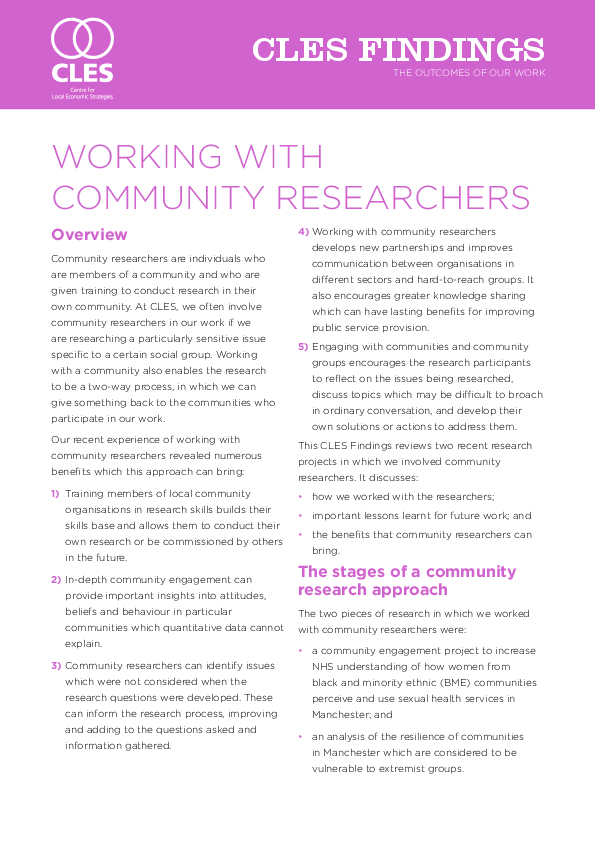Working with community researchers
by
Community researchers are individuals who are members of a community and who are given training to conduct research in their own community. At CLES, we often involve community researchers in our work if we are researching a particularly sensitive issue specific to a certain social group. Working with a community also enables the research to be a two-way process, in which we can give something back to the communities who participate in our work.
Our recent experience of working with community researchers revealed numerous benefits which this approach can bring:
- Training members of local community organisations in research skills builds their skills base and allows them to conduct their own research or be commissioned by others in the future.
- In-depth community engagement can provide important insights into attitudes, beliefs and behaviour in particular communities which quantitative data cannot explain.
- Community researchers can identify issues which were not considered when the research questions were developed. These can inform the research process, improving and adding to the questions asked and information gathered.
- Working with community researchers develops new partnerships and improves communication between organisations in different sectors and hard-to-reach groups. It also encourages greater knowledge sharing which can have lasting benefits for improving public service provision.
- Engaging with communities and community groups encourages the research participants to reflect on the issues being researched, discuss topics which may be difficult to broach to ordinary conversation, and develop their own solutions or actions to address them.
This CLES Findings reviews two recent research projects in which we involved community researchers. It discusses:
- how we worked with the researchers;
- important lessons learnt for future work; and
- the benefits that community researchers can bring.



